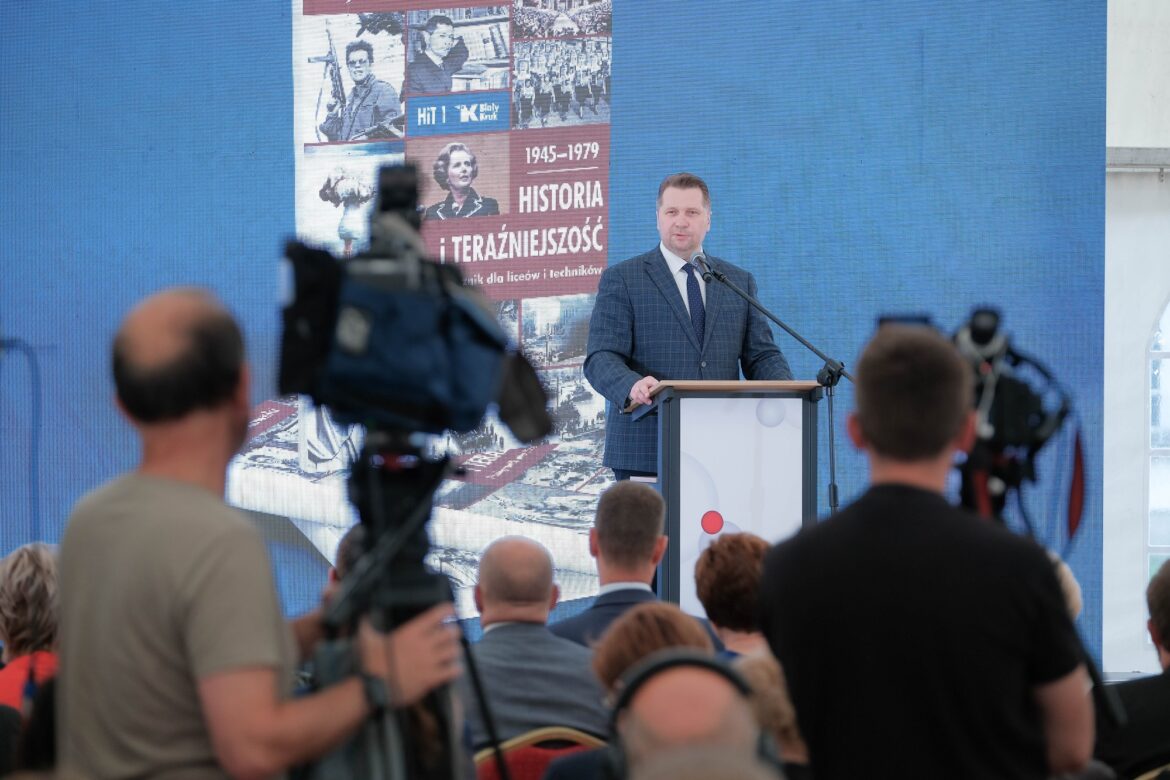“If a person does not know the latest historical processes of the second half of the 20th and the beginning of the 21st century that directly affect what is happening today, he has no idea in what circumstances he is and is extremely susceptible to manipulation”, said Przemysław Czarnek, Minister of Education and Science at the Soldiers’ Museum Cursed and Political Prisoners of the People’s Republic of Poland, where a conference for teachers on the new school subject “History and the present” was held.
Minister Czarnek recalled that teaching history at school usually did not go beyond World War II, and that only students who took history or a knowledge about society as their high school-leaving exams learned about the latest history.
Minister Czarnek thanked the scientists and experts for their contribution to the work on the preparation of the core curriculum for the new subject. He also referred to the only textbook for studying history and the present submitted to MEiN.
“The handbook is written by an eminent historian. We’ve all learned history from his books. Also, the latest one. This task was undertaken by Professor Wojciech Roszkowski. The textbook has been positively assessed in terms of its content and is still awaiting a linguistic evaluation, informed the head of the Ministry of Education and Science.
The minister also admitted that the work on the new subject and the textbook triggered a wide discussion. “There is always a high price to pay for the truth. The truth always costs a lot”, said Przemysław Czarnek.
According to the Ministry of Education and Science, the new subject, history and the present, will replace knowledge about society realized in high schools, technical schools and industrial schools in the primary field. Knowledge about society for students of technical and high schools remains unchanged.
The course program covers the period from 1945 to 2015 and combines the content of post-war history with elements of knowledge about society.
Adrian Andrzejewski





